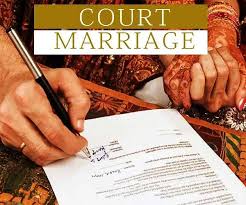The Impact of Legalizing Same-Sex Marriage on Family Law Jurisdictions in India
The discourse surrounding same-sex marriage in India has gained significant traction in recent years, especially as the country grapples with evolving social norms and legal frameworks. While same-sex marriage is not yet legally recognized in India, recent judicial decisions and legal debates have paved the way for an exploration of its potential impact on family law. This article examines the current legal landscape in India concerning same-sex marriage and its implications for family law jurisdictions. 1. The Status Quo: Same-Sex Marriage in India As of now, India does not legally recognize same-sex marriages. The existing family law framework, which includes personal laws for Hindus, Muslims, Christians, and others, does not accommodate same-sex marriages. The Indian Constitution and various personal laws define marriage as a union between a man and a woman, leaving same-sex couples without legal recognition or protections afforded to heterosexual couples. 2. Landmark Judicial Decisions Recent judicial decisions have significantly impacted the legal discourse around same-sex marriage in India. The most notable case is Navtej Singh Johar v. Union of India (2018), where the Supreme Court decriminalized consensual same-sex relations by striking down Section 377 of the Indian Penal Code. This landmark judgment marked a significant shift in the legal landscape by acknowledging the rights of LGBTQ+ individuals and decriminalizing homosexual conduct. However, while the judgment was a victory for LGBTQ+ rights, it did not extend to legalizing same-sex marriage. The Navtej Singh Johar case underscored the need for a broader legal framework to address the rights of LGBTQ+ individuals, including the right to marry. The Court’s emphasis on equality and non-discrimination hinted at the potential for future legal reforms that could address same-sex marriage more directly. 3. The Legal Debate and Legislative Proposals Following the Navtej Singh Johar ruling, there have been increasing calls for the legalization of same-sex marriage. Activists and legal experts argue that the recognition of same-sex marriages is a natural progression following the decriminalization of homosexuality. They advocate for changes in family law to provide equal marriage rights and protections for same-sex couples. In recent years, several petitions have been filed in Indian courts seeking the legalization of same-sex marriage. For instance, the Saurabh Kirpal v. Union of India case, in which a petition was filed in the Delhi High Court seeking the recognition of same-sex marriage, has brought the issue to the forefront of legal debates. The petition argues that denying same-sex couples the right to marry is a violation of their fundamental rights under the Indian Constitution, particularly the right to equality and non-discrimination. Legislative proposals have also emerged. The Marriage Equality Bill and other similar drafts aim to address the legal status of same-sex marriages. However, these proposals have yet to gain significant traction in Parliament, reflecting the complex interplay of legal, social, and political factors that influence family law in India. 4. Implications for Family Law The potential legalization of same-sex marriage in India would have several significant implications for family law: a. Redefining Marriage Legalizing same-sex marriage would necessitate a redefinition of marriage in Indian family law. Current laws, such as the Hindu Marriage Act, 1955, and the Special Marriage Act, 1954, define marriage as a union between a man and a woman. Amending these statutes to include same-sex couples would require substantial legislative changes and a re-evaluation of traditional marital definitions. b. Adoption and Parental Rights One of the critical areas impacted by the legalization of same-sex marriage would be adoption and parental rights. Currently, Indian laws on adoption, such as the Hindu Adoption and Maintenance Act, 1956, and the Juvenile Justice Act, 2015, do not specifically address the rights of same-sex couples. Legal recognition of same-sex marriage would necessitate changes to adoption laws to ensure that same-sex couples have equal access to adoption and parental rights. In the absence of specific legal provisions, same-sex couples often face legal challenges when seeking to adopt or secure parental rights. Legalizing same-sex marriage would require a comprehensive review and potential amendment of adoption laws to ensure that same-sex parents have the same rights and responsibilities as opposite-sex parents. c. Spousal Benefits and Inheritance The recognition of same-sex marriage would also impact spousal benefits and inheritance rights. Currently, same-sex couples lack access to spousal benefits such as health insurance, pension benefits, and tax advantages that are available to heterosexual couples. Legalizing same-sex marriage would necessitate changes in various laws, including tax laws, employment benefits, and inheritance laws, to ensure that same-sex spouses receive equal treatment and benefits. 5. Challenges and Future Prospects The path to legalizing same-sex marriage in India faces several challenges. Societal attitudes, political resistance, and legal complexities pose significant hurdles. While there is growing support among certain segments of society and legal experts, the issue remains contentious and divisive. However, the momentum created by judicial decisions like Navtej Singh Johar and ongoing advocacy efforts suggest that legal recognition of same-sex marriage may be on the horizon. The continued engagement of activists, legal professionals, and policymakers is crucial in shaping the future of family law in India and ensuring that LGBTQ+ individuals receive equal rights and protections. Conclusion The impact of legalizing same-sex marriage on family law jurisdictions in India would be profound, reshaping the legal framework governing marriage, adoption, and spousal benefits. While India has yet to legally recognize same-sex marriages, the evolving legal discourse and ongoing advocacy efforts indicate a potential for change. As India continues to grapple with these issues, the eventual recognition of same-sex marriage could mark a significant step toward achieving equality and justice for all individuals, regardless of their sexual orientation.


